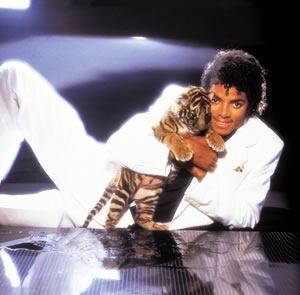
I’m sure everyone is already sick of hearing about Michael Jackson – and its only been 24 hours. But I’ve read some really great articles on how news of his death traveled around the web, brought down websites, and why it matters. Its been a really interesting couple of hours and its made me think about the speed of information, authority and the social web.
On Speed
First, check out this article by SEOmoz. Its a timeline detailing the breaking of the story from the initial post, to TMZ.com’s post, to the explosion on Twitter, CNN, and eventually Google. Big ups to Danny Dover for a great article and cool research. According to Danny, it basically took just over an hour from the time a 911 call was placed to the story being posted on x17online and then TMZ. Within ONE MINUTE from the TMZ post the Wikipedia entry for Michael Jackson was already being updated. Then things really exploded. Check out the full post to see how it all shook down…
So where were you when you got the news? More importantly what time was it and HOW did you get it. I was in a client meeting when a co-worker got a text from her husband. We all then fired up our phones and hit Twitter, CNN, and got a deluge of information. By the time we sat down for a drink (about 5 mins after the meeting) – people at the bar were already talking about it. This was spreading FAST. And at that point the story was that MJ was in cardiac arrest. Which brings me to my next observation.
On Credibility
TMZ was the first ‘news source’ to say that Jackson had died. Here’s where it gets interesting. Lots of people’s first reactions were “well, have any MSM sources like CNN confirmed it?” At this point they were pretty far behind and whether that was due to sources or not having their own confirmation, the interesting thing is that people didn’t fully trust the TMZ report. So, its important to be first – but it’s also important to be credible.
Speaking of CNN, there was great article on how news of Jackson’s death was starting to bring down lots of major websites as word spread. Check out the article here – it’s a great read. From Perezhilton to TMZ to Twitter, lots of major sites were having major issues handling the traffic. At one point, Twitter was getting 1,500 Tweets per minute and news even brought down AOL instant messenger. That’s an amazing amount of traffic, and I would venture to guess more people than ever got news from a mobile device instead of a newspaper, TV, or a desktop.
I want to get back to Danny’s post for a minute. His argument was that Google has some serious catching up to do, as it took over 3 hours for ‘Michael Jackson Cardiac Arrest’ to appear in its suggested search results, which means that was 3 hours people didn’t use Google to get their information.
I don’t think that’s a big deal really. I understand that 3 hours is a long time in terms of the web, but I also think the real-time web is something that will play out over a variety of services (as we’ve just seen). Google can’t lead on everything, and quite frankly, I think it shows that in a rush people will just pick up the tool that is top of mind or most familiar to them. I hit Twitter first. Then CNN.com. Then Huffingtonpost. It didn’t occur to me to hit Google first because it was an extra step of having to put in a search query.
For me, the takeaway for businesses is that you need to play in all these different arenas, using tools that your users are comfortable with. Not just the one YOU are comfortable with. The only thought I’ll leave you with is that I found it astounding and amazing how fast news traveled – worldwide. Forget the Emergency Broadcast System, its too damn slow.
My question to you is – How did you get your info about Michael Jackson’s death? And where were you? I’m curious…






